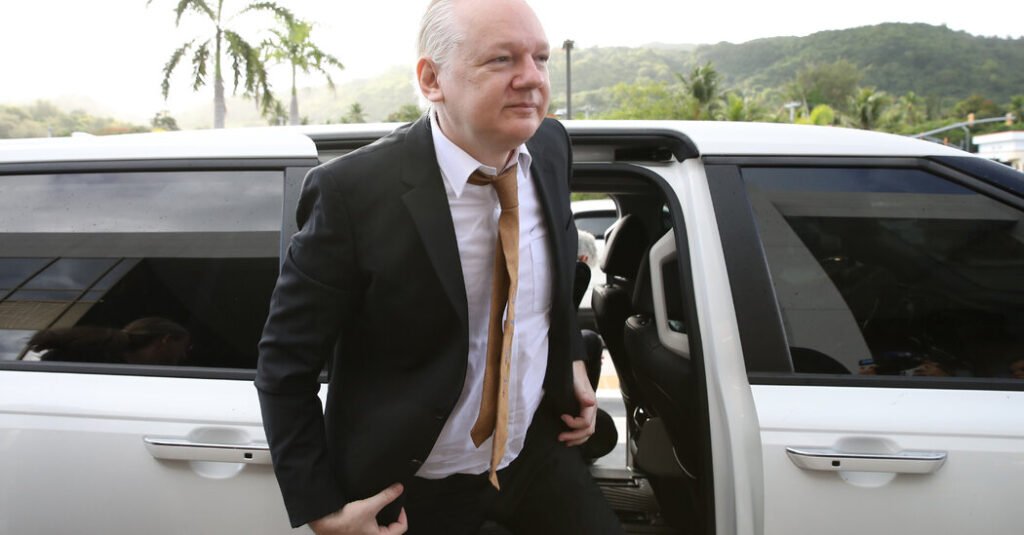WikiLeaks founder Julian Assange pleaded guilty on Wednesday to felony charges of violating US espionage laws, securing his freedom in a plea deal that was finalised in a US courtroom on the western Pacific island of Saipan.
He appeared in court wearing a black suit accompanied by his lawyer, Jennifer Robinson, and Kevin Rudd, the Australian ambassador to the United States. He made the brief plea, drawing to a close a complex case involving several countries and the US president, more than a decade after he obtained and released classified military and diplomatic documents in 2010.
It was all part of an agreement to allow him to return to his native Australia after more than five years in British custody, most of which was spent fighting extradition to the United States.
Family members and lawyers documented the journey from London to Bangkok to Saipan, the capital of the Northern Mariana Islands, a U.S. territory, posting photos and videos taken from a chartered plane online. The lawyers said Assange had refused to appear in U.S. court to negotiate his plea deal and was not allowed to fly on commercial aircraft.
His wife, Stella, Posts She has launched an emergency fundraiser on social media platform X, asking for help to cover the $520,000 in flight costs that she has to repay to the Australian government. About X He said he watched the video of Assange entering the courtroom and wondered “how much sensory overload he must be undergoing after years of sensory deprivation, walking through swarms of reporters inside the four walls of a cell in Belmarsh prison”.
In court, Assange carefully answered questions from U.S. District Judge Ramona Manglona, an appointee of former President Barack Obama, and defended his actions, saying he was a journalist obtaining information from sources and that his duties were legal and protected by the Constitution.
“I believe the First Amendment and the Espionage Act are in conflict with each other,” he said, “but I acknowledge that, given all the circumstances, such a lawsuit would be difficult to win.”
In Australia, relatives, supporters and politicians appear eager for Assange to return home.
Prime Minister Anthony Albanese, who has lobbied hard for his release, responded to the deal by noting that the case has “dragged on”. Many Australians seemed to agree, pointing out that Chelsea Manning, who handed over a huge trove of documents to WikiLeaks, including hundreds of thousands of military incident reports in Afghanistan, has already served her sentence and been released.
Despite Australia’s own strict espionage laws and deeply rooted culture of secrecy, Years in prison While his leaks were focused on the Australian government, his return drew support from politicians on both the left and right.
Sydney Greens senator David Shoebridge, known for his campaigning for the legalisation of cannabis, posted a video on X saying Assange “should not have been jailed for telling the truth”.
Conservative local MP Barnaby Joyce was equally effusive.
“I’m very pleased to hear that an Australian national who has never committed a crime in Australia, is not a US citizen and has never been charged in the UK is going home,” he said.
Many believe support for Assange reflects both a cultural affinity for the underdog and ambivalence about America’s wars since the September 11 attacks and the US justice system.
“To liberals he’s a hero in that he exposed exactly the secrets that Washington was trying to hide,” said Hugh White, a former Australian government defence official and now professor of strategic studies at the Australian National University.
“Even conservative Australians are not as unwilling to condemn Washington’s actions as our public rhetoric suggests,” he added.
Mr Assange’s father, John Shipton, said it was “fairly good news” that his son was back home after 15 years in isolation and detention.
He was due to arrive in Australia’s capital, Canberra, close to finish work on Wednesday before returning to Melbourne, where his family settled decades ago.
